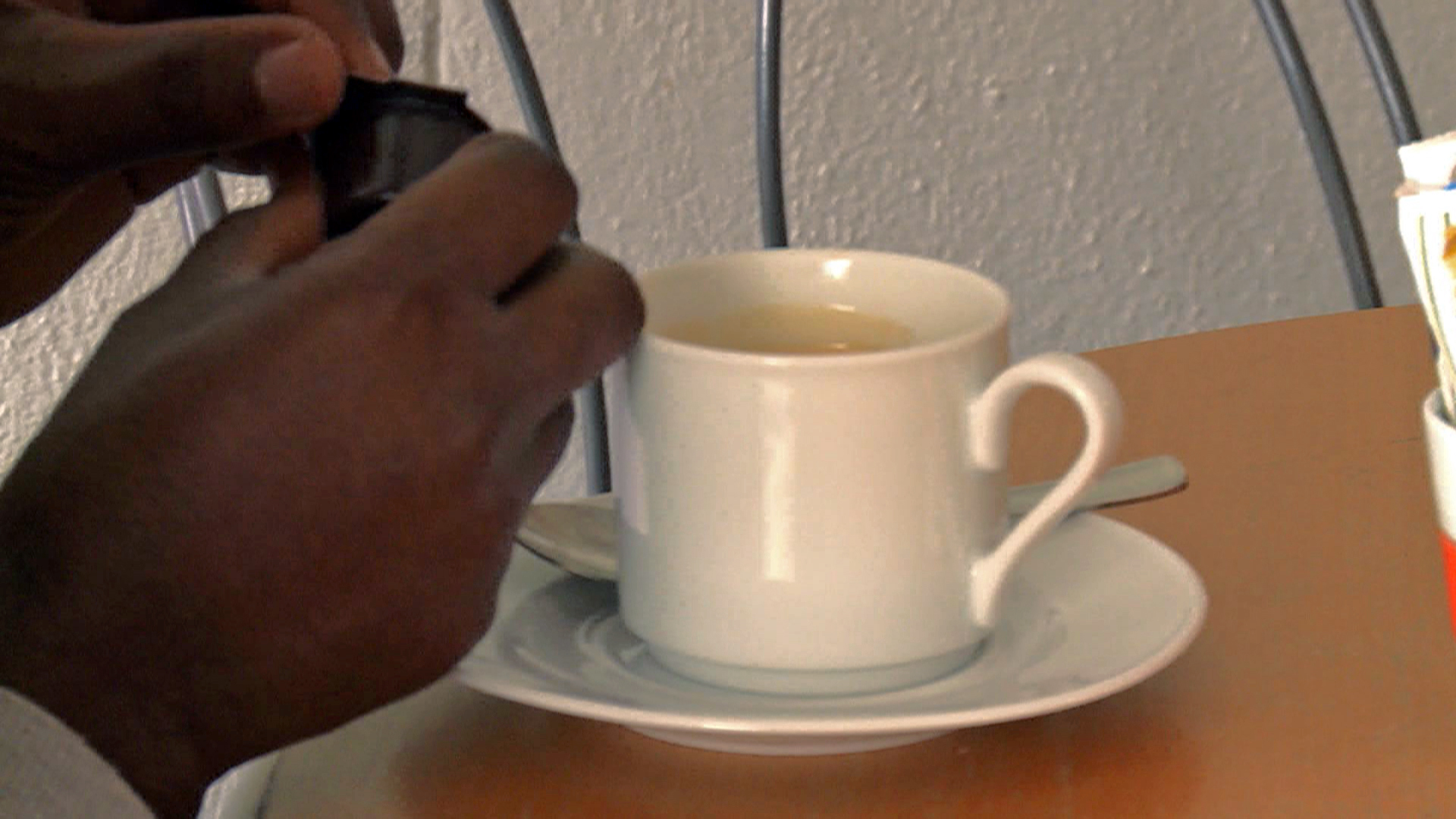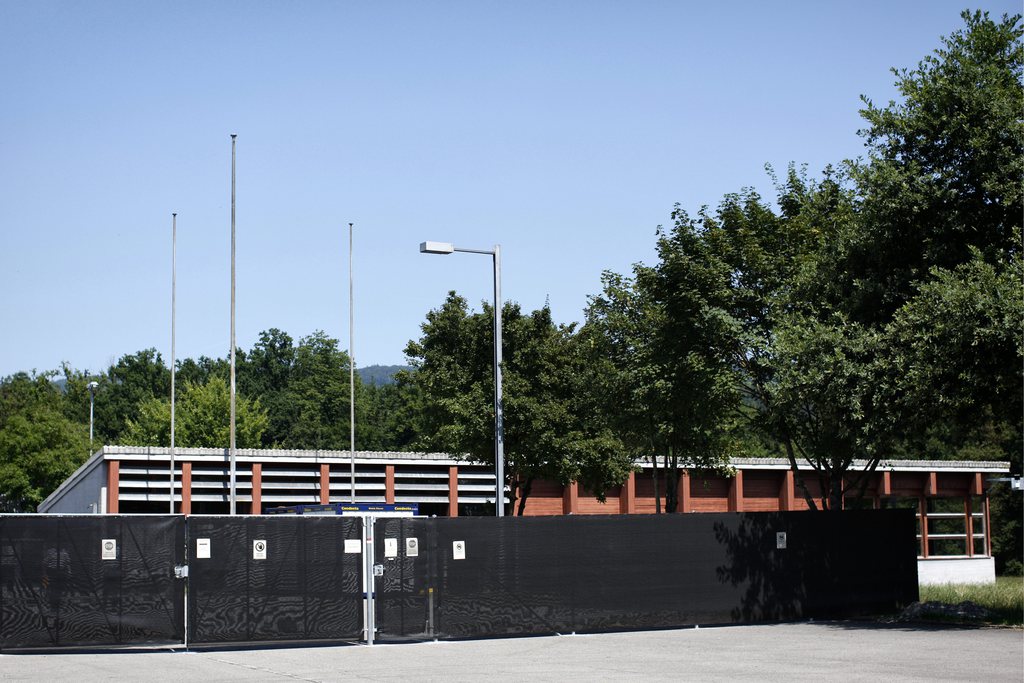ʻNothing justifies banning asylum seekers from poolsʼ

A Swiss commune’s decision to ban refugees from using an outdoor swimming pool has created a stir. The authority’s interference with asylum seekers’ freedom of movement is clearly an ethical disgrace, according to an ethics expert.
At the beginning of August, the first asylum seekers arrived at the new federal centre in the commune of Bremgarten in canton Aargau. As many as 150 refugees will be housed in the former military billet.
To create a peaceful coexistence between refugees and residents, the Federal Office for Migration and community representatives have agreed that asylum seekers are not allowed to frequent school and sports facilities without the authorities’ permission.
This exclusion of refugees has not only generated discussions in Switzerland. It cannot be justified by anything, says Anna Goppel, a senior researcher at the Centre for Ethics at the University of Zurich. The philosopher lectures on subjects including the ethics of migration, which primarily targets asylum and migration professionals.
swissinfo.ch: If you put yourself in the position of a family of refugees who is not allowed to go to the swimming pool or another sports facility, would that outrage you?
Anna Goppel: Yes.

swissinfo.ch: Do you consider this as an ethical disgrace?
A.G.: Yes, very much so. Such a ban interferes with fundamental rights of asylum seekers, more precisely the right of freedom of movement, without any appropriate justification. (Editor’s note: Article 10 of the Swiss Constitution guaranties every person the right to freedom of movement.)
swissinfo.ch: If you put yourself in the position of Swiss parents, concerned that male refugees may be a threat to their children at the pool, can you understand that?
A.G.: No. That’s a generalisation, which puts the entire group of asylum seekers under general suspicion. There are fears in society, but as long as those fears have no basis in fact, it is wrong to allow them to guide our policies.
You may respond to such fears – it is even important to do so. But responding means that you have to show that those fears are not justified; and certainly not take measures that violate fundamental rights.
swissinfo.ch: The authorities justify their measures by saying that they have to ensure peaceful coexistence between residents and asylum seekers.
A.G.: If we’re talking about peaceful coexistence, I fear that it’s completely the wrong approach. It conveys the view that refugees are dangerous, and it reinforces the wrong prejudices. Peaceful coexistence is promoted by encounters, through argumentation and by reducing prejudices and certainly not by establishing discriminatory segregation.
In order to significantly shorten the length of the general asylum process from immigration to the asylum decision or a possible departure, closer collaboration between the parties involved (asylum seekers, the Federal Office for Migration and legal representatives) is necessary, the government has said. Therefore it no longer wants to leave most refugees in the hands of the cantons, but house them in its own centres.
Switzerland has about 1,400 places at its five reception centres close to the borders in Basel, Kreuzlingen, Altstätten, Chiasso and Vallorbe. For the 25,000 applications for asylum it receives every year it would, however, require 6,000. That’s why the government plans to establish four so-called waiting and departure centres with at least 400 places close to the reception centres.
Despite considerable efforts, the federal government has up until now only been able to open a few smaller shelters. This summer, it opened or will open centres in Bremgarten, All’Acqua and Alpnach as well as on the Lukmanier mountain pass. The largest project is planned in the city of Zurich, which will house about 500 asylum seekers and implement faster proceedings from 2014.
swissinfo.ch: But you have to find a compromise when there is a conflict of interest.
A.G.: There may be conflicts between various fundamental rights. In such a case you have to weigh up which right is more important in this specific situation. But in this case there isn’t any conflict between fundamental rights, but a conflict between on the one hand the fundamental right of freedom of movement and on the other the unjustified concerns of a part of the population which are directed against an entire group.
swissinfo.ch: You say that those fears are unjustified. But the media report from time to time that refugees have become criminals.
A.G.: There are individuals who commit criminal acts. But you cannot deduce that asylum seekers are generally violent or criminal. There are also people among the Swiss population who break laws, but we do not take measures guided by the assumption that the whole population is criminal.
An exclusion may be justified if a specific person has shown by his actions that he or she poses a threat to other people. But it is not justifiable to preventatively exclude an entire group.
swissinfo.ch: But if something happens at the swimming pool, the authorities will be held responsible
A.G.: Something can happen every day at the swimming pool, irrespective of whether refugees frequent the place or not. In such a case you’ll have to look into the issues and punish those who break the law. But this is no basis for preventatively excluding entire groups.
swissinfo.ch: Refugees are in part also excluded from other rights, for example the right to demonstrate, most recently in Solothurn where police cleared a camp where asylum seekers were demonstrating against their allegedly unworthy accommodation situation. Is this also an ethical disgrace?
A.G.: You have to look in detail at the rights the refugees are refused. There is for example the regulation that asylum seekers have to be available at all times, something that you do not require from most other people in the country. There would be some justification at least for the requirement that refugees have to inform the authorities about their whereabouts during the assessment of their application, namely that asylum seekers have to be available when their case is reviewed by the authorities. This ban on demonstration, however, seems worth discussing from an ethical point of view.
swissinfo.ch: The authorities which cleared the demonstrators’ camp justified the measure by saying that they had to protect the demonstrating refugees from attacks and abuse. Would this justify their intervention?
A.G.: I don’t think so. Like with other demonstrations you have to ensure that there are no attacks. If they take place, you have to follow them up. The possibility of attacks alone, however, cannot justify a constraint on the freedom of expression.
swissinfo.ch: Certain foreign media depict Switzerland as a “stronghold of xenophobia”. Do you agree with this assessment?
A.G.: Switzerland is clearly not a “stronghold of xenophobia”. There is certainly openness towards foreigners and there are laudable integration efforts. Irrespective of that, you have to accept that actions like the swimming pool ban will be assessed legally and morally.
(Translated from German by Chantal Britt)

In compliance with the JTI standards
More: SWI swissinfo.ch certified by the Journalism Trust Initiative














You can find an overview of ongoing debates with our journalists here . Please join us!
If you want to start a conversation about a topic raised in this article or want to report factual errors, email us at english@swissinfo.ch.